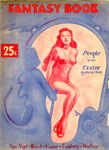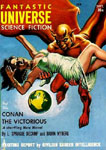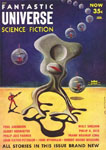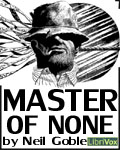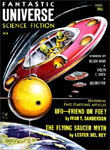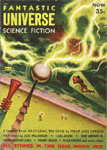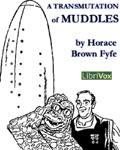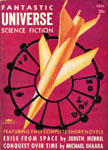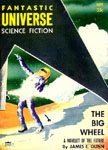
 The SFFaudio Podcast #549 – Jesse, Paul Weimer, Maissa Bessada, Julie Davis, and Terence Blake talk about Mockingbird by Walter Tevis
The SFFaudio Podcast #549 – Jesse, Paul Weimer, Maissa Bessada, Julie Davis, and Terence Blake talk about Mockingbird by Walter Tevis
Talked about on today’s show:
a question on Twitter, Julie, how it even got on the schedule, A Good Story Is Hard To Find (110), June 2015, Mark Woodword, how we’ve never heard of this book, Julie’s mom, very weird, a near masterpiece of Science Fiction, Walter Tevis, The Man Who Fell To Earth, David Bowie, not about music, Queen’s Gambit, The Hustler, The Color Of Money, one PDF on the PDF Page, it’s easier to imagine the end of the world than it is to imagine the end of capitalism, post apocalyptic, a post-capitalist society, a post-scarcity society, a downer, a slow slow slide into the long dark night, uplifting (also), the state of humanity, they way he reveres reading, enjoy an omelette, re-watching Star Trek, the Animated Series, The Next Generation, it gets better, Mark Zuckerberg, Andrew Yang, take away all goals, stripping us of our humanity, drugs, hippies, an anti-marijuana book, a critique of the hippies, silent movies, a world you didn’t know, when this old man dies, a different view, Spoforth, pensioning off Paul, reading is not valued, Paul teaches Mary how to read, looking for pornography, he was teaching pornography and mindfulness, a savage critique, who’s the mockingbird?, he wants to know what’s going on, genuine examples of humanity, Julie is being so mean to Paul, Paul in the book, Bentley, spaw-forth or spoof-forth (and multiply), struck to the heart, revealed as the villain, he’s not even sure it’ll work, kill humanity to kill ones’ self, kinda dark, sympathetic, did he intend to kill the child right from the start?, detector, a lot of twists, no diary, a hard shift, switches to Mary Lou, I don’t like this book anymore, not who I imagined her to be, love as a projection, maybe she was blind to herself, or emotionally repressed, when he gets thrown in prison, hanging out with the baleens, a horror novel, shifting around, an impressive world, standard mainstream good writing, built up this whole world, premises are revealed to us, is he a bad guy, an abortionist, destroy humanity, he didn’t invent the system, he’s cursed with an inability to die, massive, a total dystopia, Brave New World‘s children, Huxley was optimistic, self immolation, political protest, a political act, a religious act, a sacrifice, people can’t string ideas together, going to the same cafe, they’re singing, what is the motivation, psychology, Annabelle, SEARS as a church, A Boy And His Dog (1975), a revelation, different genres, my pet Biff, New York City, the Adam and Eve theme, story is how we find truth, books get us in touch with other minds, what a masterpiece, have you got to the monkey bacon yet?, bacon for monkeys?, clever ideas going on, a lot of biblical stuff, this is Jonah, he’s vomited out, the thought buses are like the friends in Job, they’re something else, that thought wasn’t finished, the true inhabitants of the city, a line relevant to our times, cars were promulgated by a cabal of oil manufacturers, dealing with the consequences of a world we never made, a mass transportation system, look very deeply back at old stuff at the time, reading TV Guide from 1980, it’s fascinating, yo, a good magazine about the technology of TV, what television will be like in 1990, they kinda nailed it, gay behavior will be more popular, the trends we see here, the 1980 Olympics in Russia, the invasion of Afghanistan, anyone who would invade Afghanistan is obviously a monster, the fossils of a previous generation, A Streetcar Named Desire, streetcars around the world, one more reason to go to Nice (France), I say that in Jes(t), she picks a fruit, its artificial, what they’re being taught in school, quick sex is best, it comes from the same place, reconstructed all the greatness in science fiction, a mainstream book with a deeply science fiction world behind it, the zoo is all fake, even the children are fake, the Adam and Eve thing, when he comes back to Marylou, Jesus!, Mary, the notion of felix culpa (the fortunate fall), remembering her action, he explicitly remembers, it isn’t going to be as bad as you think, thank you Terence, so loaded, Spoforth is a good carpenter, the poem from T.S. Eliot, the songful simian, a Christ figure, the little sparrow, like the end of Blade Runner when Roy Batty dies, the same problem in the other direction, a sort of love, joy, compassion, influenced?, a lot of Philip K. Dick elements, artificial emotions, the symmetry trick that works every time, it’s beautiful, an act of mercy and love, the poor guy, condemned to Hell on Earth, I Have No Mouth And I Must Scream by Harlan Ellison, I Am, keep sliding towards oblivion, actively seeking death, the mercy that he wants the mercy he’s trying to give humanity, the behavior of humans is not good, an Arthur C. Clarke vibe, The City And The Stars, that world is perfectly broken, the only thing you can do is appreciate the abstract, blotchy moving colour shapes and sounds, no more music, the heart and the center of the book, the robot toaster factory, a whole novel, a mindless parody of productivity, those grey uniformed sub-morons that all look like Peter Lorre, and then he fixed them, suddenly people are getting toasters again, the warmth and the light (a preview), its a rebirth, what happened in real-life that you didn’t see on twitter, looking for stuff on Netflix, Year One (2009), cave man comedies, fur bikinis, One Million B.C. (1940), science fiction stories, H.G. Wells and Rudyard Kipling, The Wonderstick by Stanton A. Coblentz, the wonder of the wheel the wonder of the stick, a retelling of the bible, Harold Ramis plays Adam, David Cross is Kane as Paul Rudd is Abel, that tree of knowledge, only the mockingbird sings at the edge of the woods, that’s really powerful, all the characters, Simon, the alternative father for Marylou, why she’s so different, monstrous and straight out of Brave New World, we recognize all this biblical stuff, you get both, there’s gotta be something out there, an The Brick interview with Walter Tevis, it felt very Lawrence Block-y, “Mockingbird’s about coming out of alcoholism.”, “But I don’t do any outlining. I don’t do any researching. I was tempted while writing Mockingbird to start watching silent movies, you know, and see if I could pick some interesting stuff to use, and I realized that would’ve been just a dodge to avoid the typewriter. So I never research anything.”
LD: You paint a pretty bleak picture in terms of literacy in Mockingbird.
WT: It comes from twenty-five years of being an English teacher.
RW: Do you see a decline in literacy? I do, but do you?
WT: Oh, you hear about it a lot. Yes, I’ve seen it a bit, but my private experience as an English teacher has been that Americans don’t read books. They didn’t read books in 1949 when I started teaching. They don’t read books now Television did make a difference. It deepened the slack of the slackjaws and gave another great quantity of garbage for people to fill their lives with. But, you know, there was other garbage around before television. Mockingbird does sometimes, I think, weaken into an attack solely on television and on the modern world, and “weaken” I say because I’m not completely convinced of all those things that I say. But what I am convinced of is that it is very bad for people to find substitutes for living their lives, and that’s what I hope I do say, and say well, from time to time in the book.
reading is the tool that opened up his mind and taught him how to think, a photograph of notes to the editor, the surprise that she’s going to narrate, destructive to our view of his wonderful relationship, she came to appreciate him, he forgot her too, what they had wasn’t super-deep, she was Dante’s Beatrice, Edward Hopper, there’s no door in Nighthawks, alone together, some lady sitting on a bed looking out a window, beautifully painted, what makes us care about his paintings is the emotions in these characters, the emotions that make Hopper’s paintings so powerful, a criticism of the kind of television being shown in the book, stimulating arrangements of color form and design, the psychedelic, Tevis’ take on Hopper’s quote, yeah exactly, four things you can get from films (books), manipulating one’s mental states, a means of learning something about the past, why memory is not enough, sympathizing with other people from other times, knowing about other people’s feelings you discover your own feelings, he captures that experience, jokes from 200 years ago, a line that crystallizes something you’ve always known but never seen before, before Plato, the only book he never reads is Gone With The Wind, See Spot Run, the alphabet is arbitrarily ordered, this is science fiction, the scene in Frankenstein where the creature learns how to read and speak, Paradise Lost, Plutarch’s Lives, his creation book (Frankenstein’s lab notes), this is a Frankenstein-fixed story, the creation of the world, how to service robots and thought-buses, a masterpiece, nature is always pulled in, puzzling over how to fix the thought-bus, a large dramatic spiderweb, the moon, made of pure light, the elaboration and power of life that could make such a design, this makes me feel something, Julie’s favourite Psalm is Psalm 19, so mysterious, the way you hold that cup, so much bigger, the human experience, he wrote it for us, the earlier scene with the spiderweb, the court is a plastic building, you go clean the judge’s face, yellow powder, they all have the same look on their face, the system turns on and gears up, other prisoners, the prison sequence, I didn’t see this coming, Belasco, tattoos, Queequeg!, rule breakers, paintings of trees and birds, have a fire on the beach, as free as people in that world can be, a temptation to stay there?, the escape itself, a community of people to help him toughen up, the beginning of his journey, The Handmaid’s Tale. reading is powerful, the way we got there, our own fucking laziness, go along get along, rage rage rage against the machine, read a fucking book, you’ll like it it’s good, not just shore-dinners, a so coddled society, memorizing your life, a kind of writing, a book that feels like its in dialogue with Fahrenheit 451, drop out communities, finding the libraries (it’s treasure!), insistence of family and community, Annabelle becomes his mother, enriched by other communities, great risks to my individuality, the robots who taught me, yup, individualistic, you’re not letting me help anyone, a balance, a really good job of pointing that stuff out, it doesn’t feel like a sermon, super-funny, Buster Keaton, he’s baptized in the mall, the SEARS (catalogue) was a big part of Jesse’s life in 1980, a book of pictures of things, the world in the background economically makes sense, could you game in this world?, a survival game, rebuild society, back to board-games, Scrabble, role-playing games, a very New York thing to do, California, The Last Chase (1981), how the credit card system worked, the pricing, what are they teaching in those classrooms?, yoga and meditation?, sopors, soma, give yourself to the screens, Terence is right!, social media, stream everything, everybody is literate now (to read stop signs and instructions), people who never read anything (maybe a magazine once a year), a super-nice person, what is wrong with you, there are these parallel societies, Anabelle is that representation, part of this is looking at creativity, Spoforth wasn’t creative but he learned, Exhalation Stories: (The Lifecycle Of Software Objects) by Ted Chiang, the whole him trying to find his earlier incarnation, recapture what he had lost from his earlier mind, in the dream, its a baby, just before he dies, the missing peice in the puzzle of his dream, in Westworld for recipe for an intelligent robot is a reverie, the reverie we get from literature, its made him more human, he’s trying trying trying, another element of information, what humanizes him, he felt love, the most beautiful thing she’s ever seen, I love you, still strange, the mockingbird sings from the edge of the woods, Scott Danielson, “Whose woods these are I think I know”, the mockingbird is the creative artist, always in association with creativity, a deepening sadness, more creative than we give him credit for?, the boy’s drawings, it works on multiple levels, the fake, the marginal, mocking, a mockery of a man, the emotions of a man and he can’t connect, this mock level, mockingbird songs, things stung together, Tevis is the mockingbird, there’s this hybridization, a very literary book, To Kill A Mockingbird, it sings its heart out, to deal with race again, is it because you’re a black man, it’s 1978, the most advanced beautiful man ever, he was the pinnacle and they made him a black man, still enslaved, in his dream his feet are white, Typee by Herman Melville, an Anabelle like character, only one person’s working hard all day line, Bentley see this as an injustice, is it an injustice?, her choice, making something of value, cooking is work, its still good to feed the kids (even if they can’t thank you), making the mistake of thinking humans are all one way, objectivism, let’s be greedy together, reading Ayn Rand, is Anthem a rip-off of We, moms being moms, I’m a loner, everybody’s talking to each other all the time, invading privacy is the worst thing, it was the robots that did it, the society happened almost by accident, quite beautiful, we fall into the trap of amusing ourselves to death, John Savage likes pain, they twist it against him, “that’s illegal”, those people are all around us, he had his stash, dumping herself full of Valium, him living in her house, thank your mom for us, how many people heard about it through you through her through this podcast, Marissa would have been here very happily, the Westworld connection, good choice, thank you!



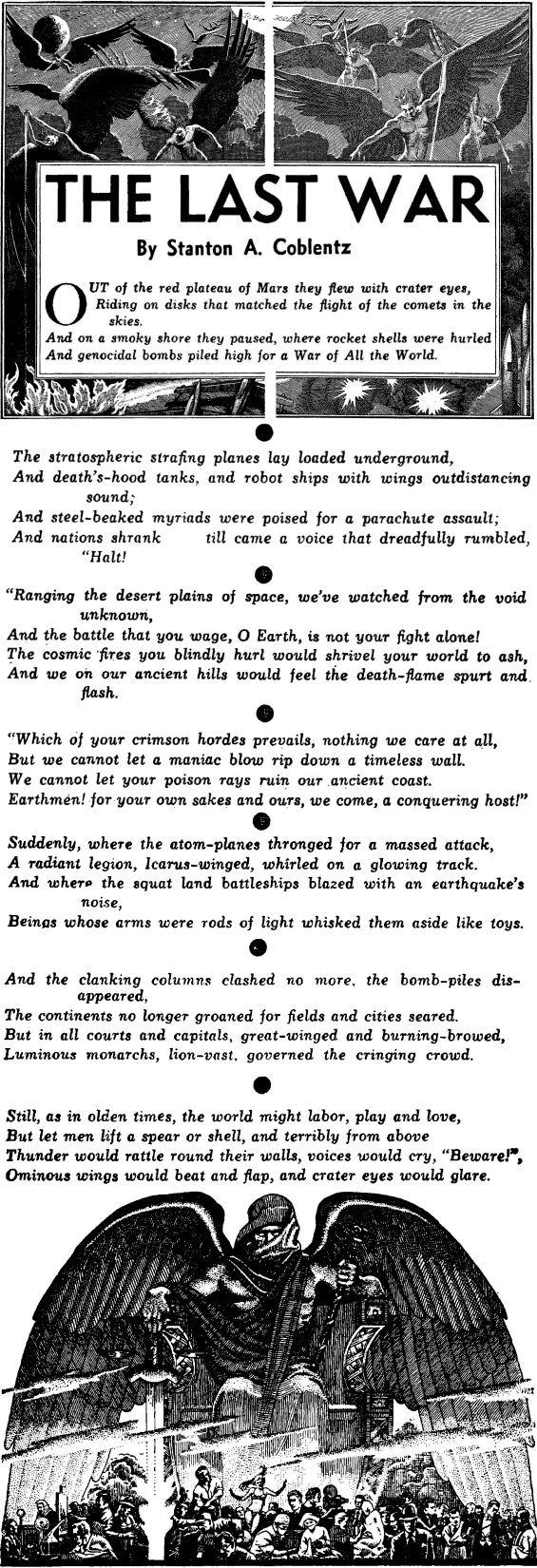
 Here’s another almost all new-to-audio collection from
Here’s another almost all new-to-audio collection from 
